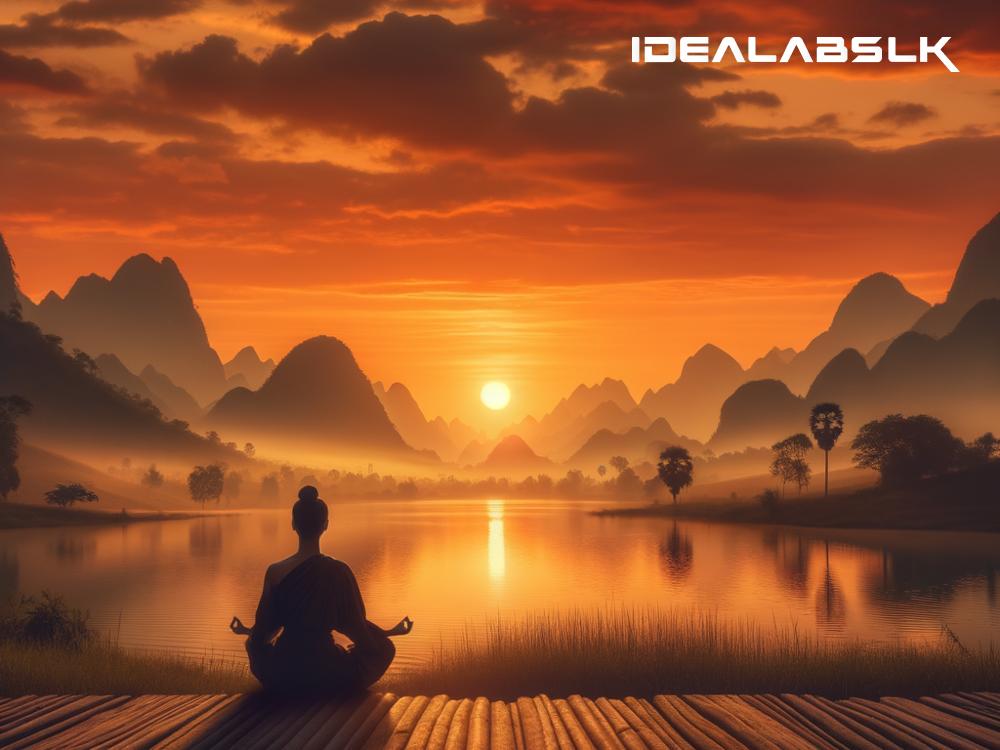Unlocking Serenity: How Gratitude Practices Shape Mental Peace
In the hustle and bustle of modern-day life, finding mental peace can feel like an elusive treasure. Amidst the chaos, there's a surprisingly simple key to unlocking this treasure—gratitude. Yes, the act of feeling and expressing thankfulness has the power to transform not just moments, but lives. Let's dive into how gratitude practices can be a cornerstone in building a fort of mental peace.
The Science of Gratitude
Before we explore the 'how,' let's glance at the 'why.' Research in the field of positive psychology has shown that gratitude does wonders for our mental health. It reduces stress, fights depression, and overall, makes us happier individuals. When you practice gratitude, you're essentially training your brain to focus on the positive, creating a shield against the negative arrows life throws your way. It’s like having your personal peacekeeper.
Starting with a Gratitude Journal
One of the most direct ways to engage in gratitude practice is by keeping a gratitude journal. It’s simple: every day, write down three things you’re grateful for. They don't have to be monumental; even the smallest joys count. Maybe it was a warm cup of coffee, a compliment from a coworker, or simply the comfort of your bed. This practice sharpens your awareness of the good in your life, slowly paving the way to mental peace by reducing chronic stress and negativity.
The Ripple Effect of Saying "Thank You"
Saying "thank you" isn’t just good manners; it’s a powerful tool in strengthening relationships and building a supportive community around you. Expressing genuine appreciation makes others feel valued, and in return, you often receive warmth and kindness, creating a positive feedback loop. This sense of connection and belonging is fundamental to our well-being and a stepping stone to achieving a peaceful mind.
Mindfulness and Gratitude: A Perfect Pair
Practicing mindfulness, which involves being fully present and engaged in the moment, goes hand in hand with gratitude. By paying close attention to your surroundings and current experiences, you can uncover numerous reasons to be grateful. Mindfulness shifts your focus from what your life lacks to the abundance that is already present, generating a profound sense of peace.
Digital Detox: Gratitude in the Age of Distraction
In an era where our eyes are constantly glued to screens, taking time to disconnect is a form of gratitude for the moment and for oneself. A digital detox, even if just for an hour before bed, allows you to appreciate the world around you and connect more deeply with yourself and others. This break from the digital world can significantly decrease stress levels and increase feelings of contentment and peace.
The Practice of Gratitude in Adversity
It’s relatively easy to feel grateful when life is going smoothly, but the true test of gratitude lies in finding reasons to be thankful during tough times. This doesn’t mean ignoring pain or hardship, but rather, acknowledging them and appreciating what you still have or have gained in the process, such as strength or wisdom. This perspective shift doesn’t just help in weathering storms; it fortifies our mental peace in profound ways.
A Community of Grateful Hearts
While gratitude starts as an individual practice, its effects are magnified when shared. Encourage friends and family to engage in gratitude practices, whether through shared gratitude lists or simply expressing appreciation for each other more often. Building a community of gratitude not only strengthens relationships but also creates a collective well-being and peace that can extend beyond individual circles.
Transforming the World, One Thankful Step at a Time
Imagine a world where gratitude is as habitual as breathing. Such a world would likely be kinder, more compassionate, and peaceful. By incorporating gratitude practices into our daily lives, we’re not just enhancing our mental peace; we’re contributing to a global shift towards a more grateful and serene society.
Final Reflections
Gratitude is far more than a feel-good hashtag; it's a pathway to lasting mental peace. It encourages us to slow down, acknowledge, and appreciate the beauty of the present. As we cultivate gratitude within ourselves, we contribute to a ripple effect of positivity and peace that reaches far beyond our personal boundaries. So, why not start today? A simple "thank you" to yourself, to others, and to the world might just be the gentle nudge you need towards a more peaceful mind and heart.

